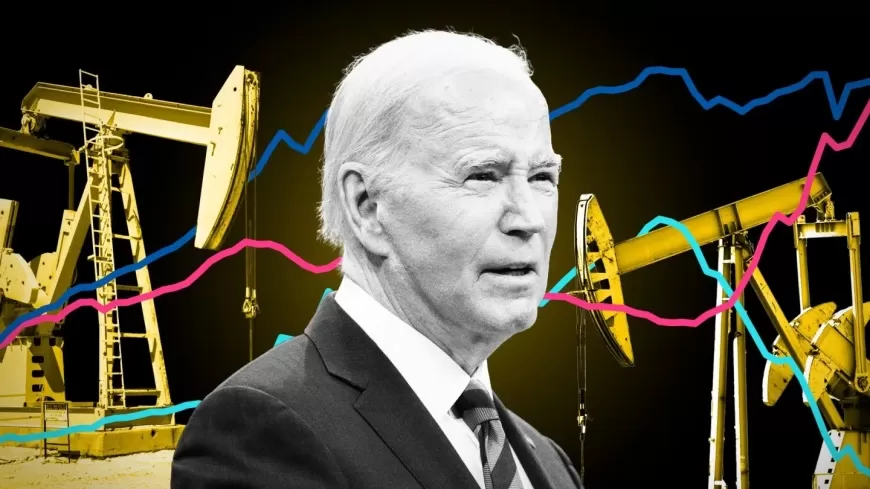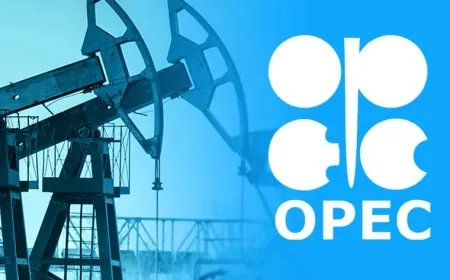US Oil Giants Paid Over $42 Billion to Foreign Governments in 2023 – New SEC Disclosures Reveal
US oil companies paid over $42 billion to foreign governments last year. Discover the impact on American taxpayers and the push for transparency

The three largest US energy companies have disclosed that they collectively paid over $42 billion to foreign governments in 2023, an amount that dwarfs what they paid to the US government. This significant detail emerged from recent filings by Exxon Mobil, Chevron, and ConocoPhillips, as part of a new reporting requirement set by the Securities and Exchange Commission (SEC).
For the first time, these companies had to publicly share details of their payments to governments around the world, a move that transparency advocates have been fighting for over a decade. The aim is to shed light on the financial dealings of major oil companies and to help assess whether American taxpayers are getting a fair share of the revenue generated by the country’s vast oil production.
Foreign Payments Far Exceed US Contributions
The US has become the world’s leading oil and gas producer, with much of this growth coming from the Permian Basin in Texas and New Mexico. Yet, despite this domestic success, the recent data shows that a majority of payments by US oil giants flow to foreign governments.
Exxon Mobil reported that approximately 90% of its nearly $25 billion in global payments went to foreign governments in 2023. The company’s largest payments were made to the United Arab Emirates ($7.4 billion), Indonesia ($4.6 billion), and Malaysia ($3.2 billion). By comparison, Exxon’s payments to the US government totaled just $2.3 billion, with only $1.2 billion going to the US Internal Revenue Service.
Chevron followed a similar pattern, paying $14.6 billion to foreign governments, with $4 billion going to Australia alone, while its US payments were just $2 billion. ConocoPhillips paid $6.5 billion globally, but only $1.3 billion went to the US.
Are Americans Getting Their Fair Share?
The imbalance between what these companies pay abroad versus what they contribute to the US has sparked concerns about whether American taxpayers are getting a fair deal for the extraction of the country’s natural resources. Michelle Harrison, deputy general counsel for EarthRights International, an environmental advocacy group, highlighted the issue, saying, “The truth is, here in the US, we get one of the worst deals for the extraction of our natural resources.”
This situation raises questions about how the US manages its oil resources compared to other countries, where governments often receive a much larger share of the profits generated from oil and gas production.
Oil Companies Respond to the Numbers
Exxon Mobil explained that the comparisons between US and overseas payments aren't straightforward. In their SEC filing, the company pointed out that it paid an additional $4 billion in state and local taxes, which weren’t included in the federal reporting requirements. Exxon argued that once these payments are factored in, their total contributions to the US government look much more significant.
Chevron also weighed in, highlighting that its operations in the US are structured differently. For instance, Chevron’s holdings in the Permian Basin span about 2.2 million acres, and around 75% of this land is connected to either low or no royalty payments. This, the company claims, is a major advantage that boosts value for shareholders, as it reduces their overall tax burden compared to other countries where they operate.
The Push for Transparency: A Long Time Coming
These disclosures became mandatory due to a new rule stemming from Section 1504 of the Dodd-Frank Act. The law, intended to increase transparency in financial dealings, faced several challenges over the years. It wasn’t until 2020 that the SEC finally adopted the rule, following years of advocacy by transparency groups who wanted the public to know more about the global financial activities of major oil companies.
The adoption of this rule also reflects the growing influence of the environmental, social, and governance (ESG) movement, which calls for more openness and accountability from large corporations.
What This Means for US Energy Policy
The data revealing these massive payments to foreign governments has sparked fresh debates over whether the US is effectively managing its natural resources. Given that the oil and gas industry is such a vital part of the American economy, many are wondering if the country is receiving the financial benefits it deserves from this sector.
These new disclosures could prompt lawmakers and policymakers to reassess how the US negotiates with oil companies, potentially leading to changes that ensure more of the revenue stays within the country. As the oil industry evolves, there's likely to be increased pressure on both the government and the companies themselves to ensure that American taxpayers receive a fair share of the profits generated by the country’s vast natural resources.
This new level of transparency could be just the beginning, with more public scrutiny and debates expected about how the US can better capitalize on its status as one of the world’s leading oil producers. It’s clear that as the conversation continues, more attention will be placed on finding ways to balance the needs of the energy industry with the interests of American taxpayers.
Also Read: Gasoline Prices Fall in August, Significantly Impacting Inflation Trends
































































